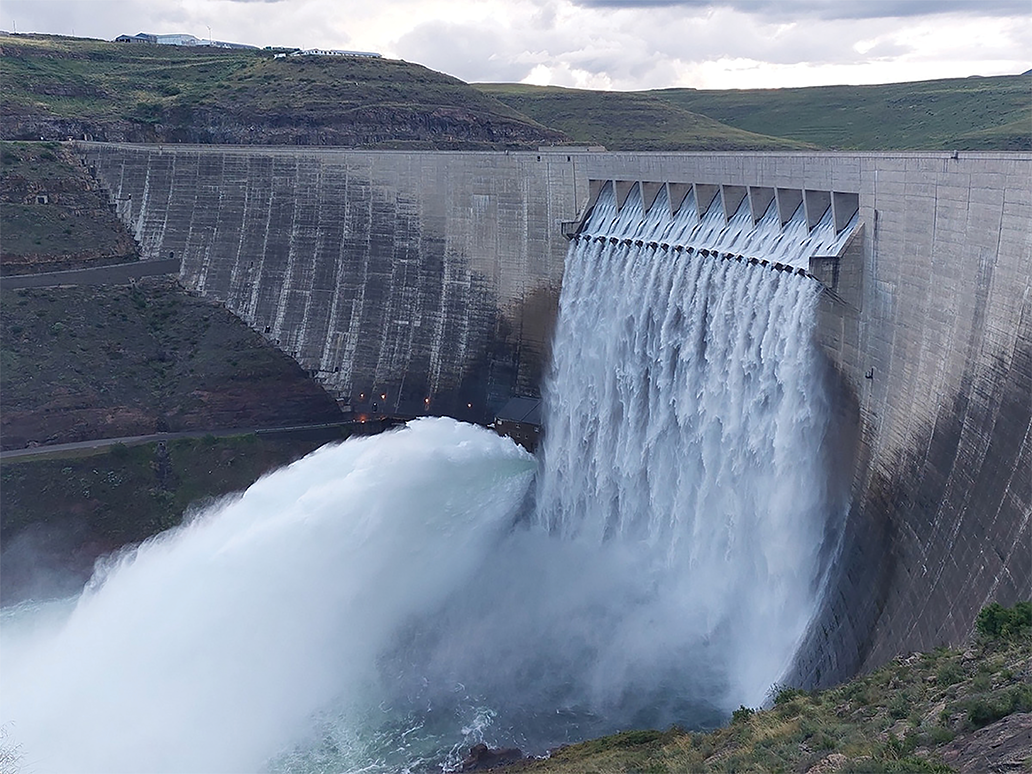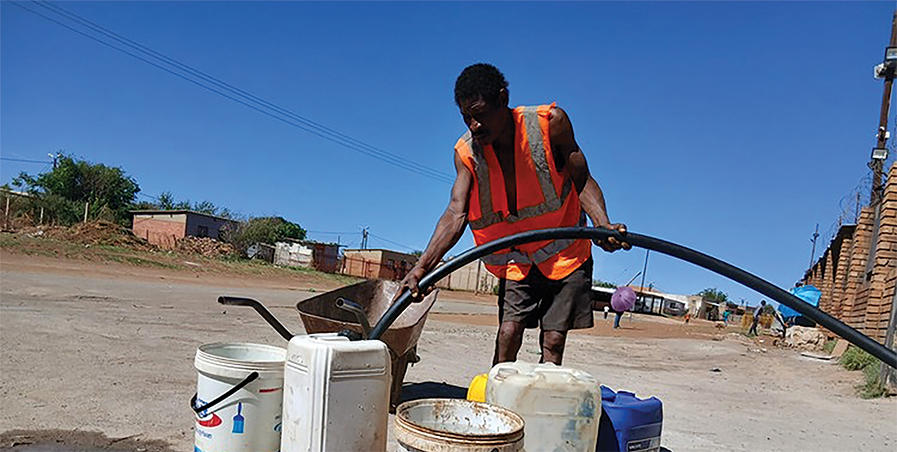SCARCITY: Two strategic initiatives to bring key stakeholders from water sectors both in the country and across the continent, to kick-start collective solutions to pressing water challenges…
By Len Maseko
Two major developments to urgently address the deepening water crisis across South Africa and the rest of the continent have been unveiled in Johannesburg – the launch of Wits University’s flagship water research centre and the upcoming Water Security Africa Summit this week.

Announced on Monday, the upcoming Water Security Africa Summit is scheduled for November this year and is expected to attract more than 300 leaders from government and finance sectors to tackle both South Africa’s water emergency as well as scarcity of the resource across the continent. The two-day conference will be held at Maslow Hotel in Sandton on November 4 and 5. It will represent a strategic alignment initiative to connect both water scarcity and energy volatility challenges simultaneously.
In another development on Wednesday, the University of Witwatersrand (Wits) launched a flagship water research centre, Wits:H2O, in response to the disruptive water crises. The move comes against the backdrop of South Africa’s deepening water crisis, especially in Johannesburg and in other parts of the country. The frequent regional ‘Day Zero’ type disruptions, prolonged supply failures in metros and smaller municipalities, including collapsing infrastructure leaving millions vulnerable.
Wits:H2O is an interdisciplinary research initiative that focuses on systemic solutions to Africa’s water challenges. It involves a network of researchers at Wits University, including more than 60 scholars and researchers from the fields of science, engineering, health sciences, humanities, commerce, law and education, as well as from other research institutes based at the institution.
The programme for the forthcoming Water Security Africa is designed to give commercial and industrial leaders practical insight into securing water alongside power. Over two days, sessions will address how businesses can reduce water use, manage leakages, and integrate circular economy practices.
The Water Security Africa conference runs alongside the C&I Energy & Storage Summit, giving delegates a rare opportunity to address power and water in one conversation. Other key points to be discussed, include:
• Risk and resilience: strategies to safeguard production against drought, infrastructure failure, and rising costs;
• Investment and finance: new models for funding water treatment, reuse and integrated energy–water systems;
• Technology in action: case studies on industrial reuse, smart monitoring, and hybrid solutions that link energy reliability with water security; and
• Integrated agenda: sessions where energy and water security are treated as connected risks and opportunities for business.
Previously known as Centre in Water Research and Development (CIWaRD), Wits:H2O is poised to work towards bringing real-world solutions to water challenges in South Africa and across the African continent.
The centre is led by Professor Craig Sheridan, Claude Leon Foundation Chair in Water Research at Wits, supported by Professor Heidi Richards from the Wits School of Chemistry with the support of a large network of interdisciplinary researchers.
“We, as South Africans located within the African continent, are facing a water crisis. From regional ‘Day Zero’ type events to ongoing local water supply failures, every person is impacted. Wits:H2O represents our approach to thinking about water and engaging meaningfully with this crisis,” says Sheridan.
The centre also collaborates with various other organisations locally and globally, including government, business and civil society, to help safeguard Africa’s most critical resource, with the purpose of combining the best thinking globally to consider our water challenges.
“South Africa is facing a significant skills gap in the water sector,” says Sheridan. “Decades of underinvestment in training and capacity building have left us with too few qualified engineers, hydrologists, water managers and sanitation experts.
“Wits:H2O aims not just to conduct research, but to rebuild this essential skills base, while also to training and mentoring the next generation of professionals who will face the future of the increasing water challenges of our country and continent.”
South Africa is currently in the midst of a systemic water crisis as a result of the convergence of factors such as ageing infrastructure, poor governance and pollution with an increasing population and demand.
Communities across the country face daily water disruptions, such as faltering water treatment plants; escalating water losses and mine drainage and untreated wastewater contaminating rivers and aquifers.
Climate change compounds these challenges, with longer droughts and more extreme rainfall events threatening food production, rural and urban water security and public health. Projections suggest that by mid-century, water deficits could become the norm unless innovative, integrated solutions are urgently adopted.
Launched at the Wits Anglo American Digital Dome, the centre brings together prominent stakeholders in the South African water sector, in order to kick-start the conversation on solving the country’s water challenges.
“Wits:H2O’s vision is to go beyond thinking about solutions, to think about how the solutions impact society, and to assist society in responding to our future challenges as they relate to the increasing scarcity of water resources. Also, we hope to inform, inspire and partner with stakeholders across the world in providing sustainable solutions for our continent,” added Sheridan. – Additional reporting by Lehlohonolo Lehana


































